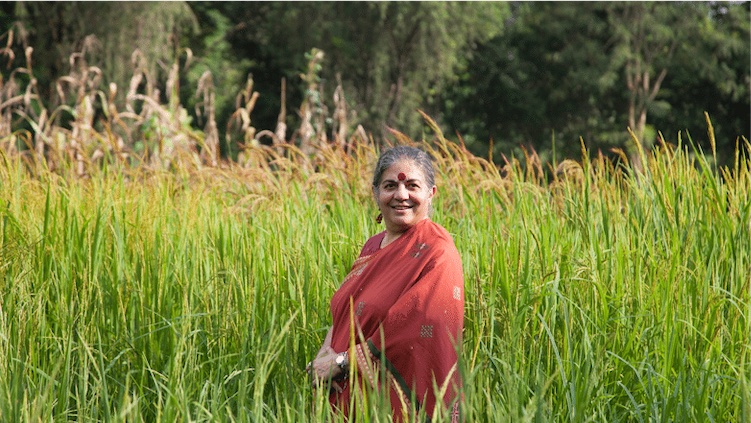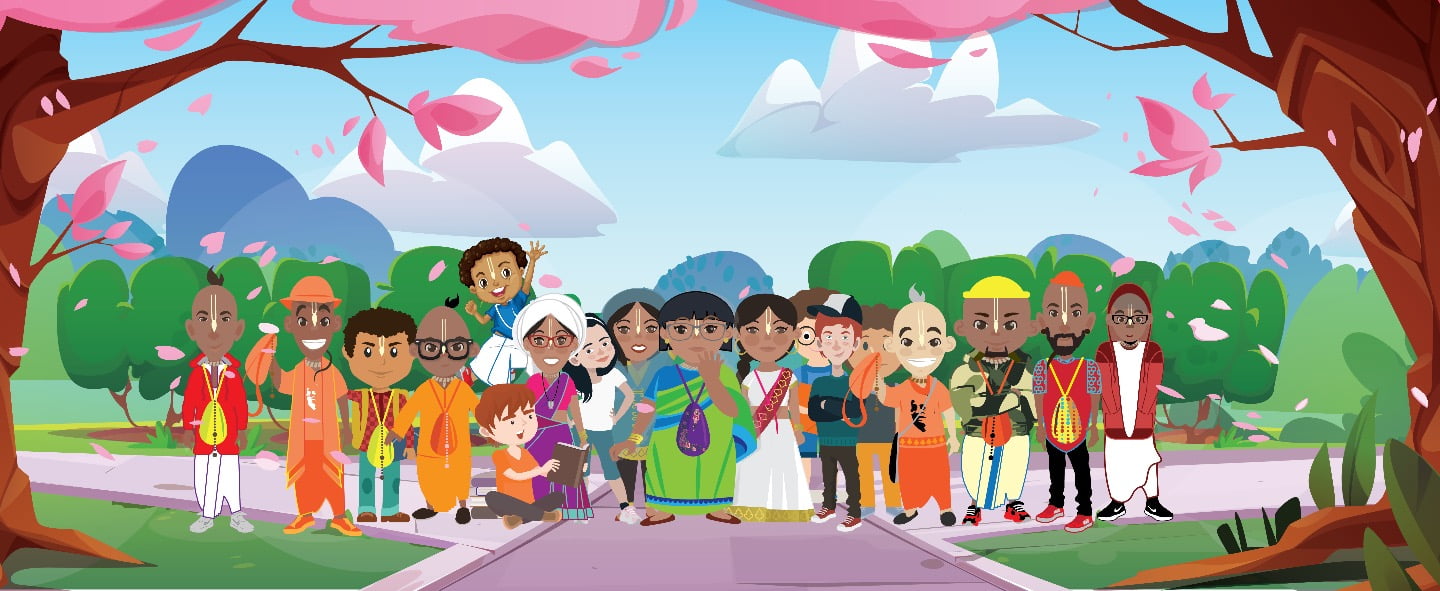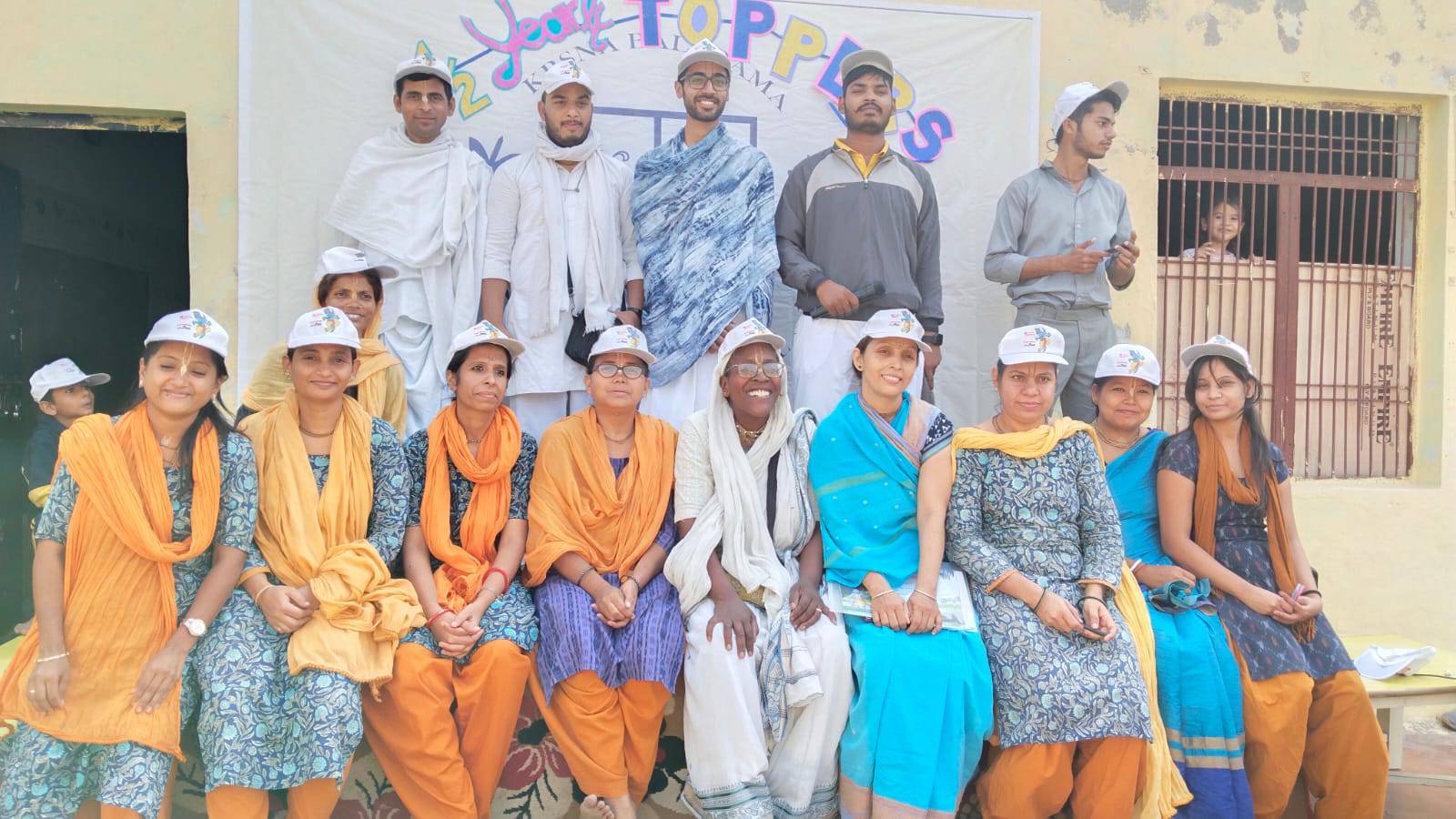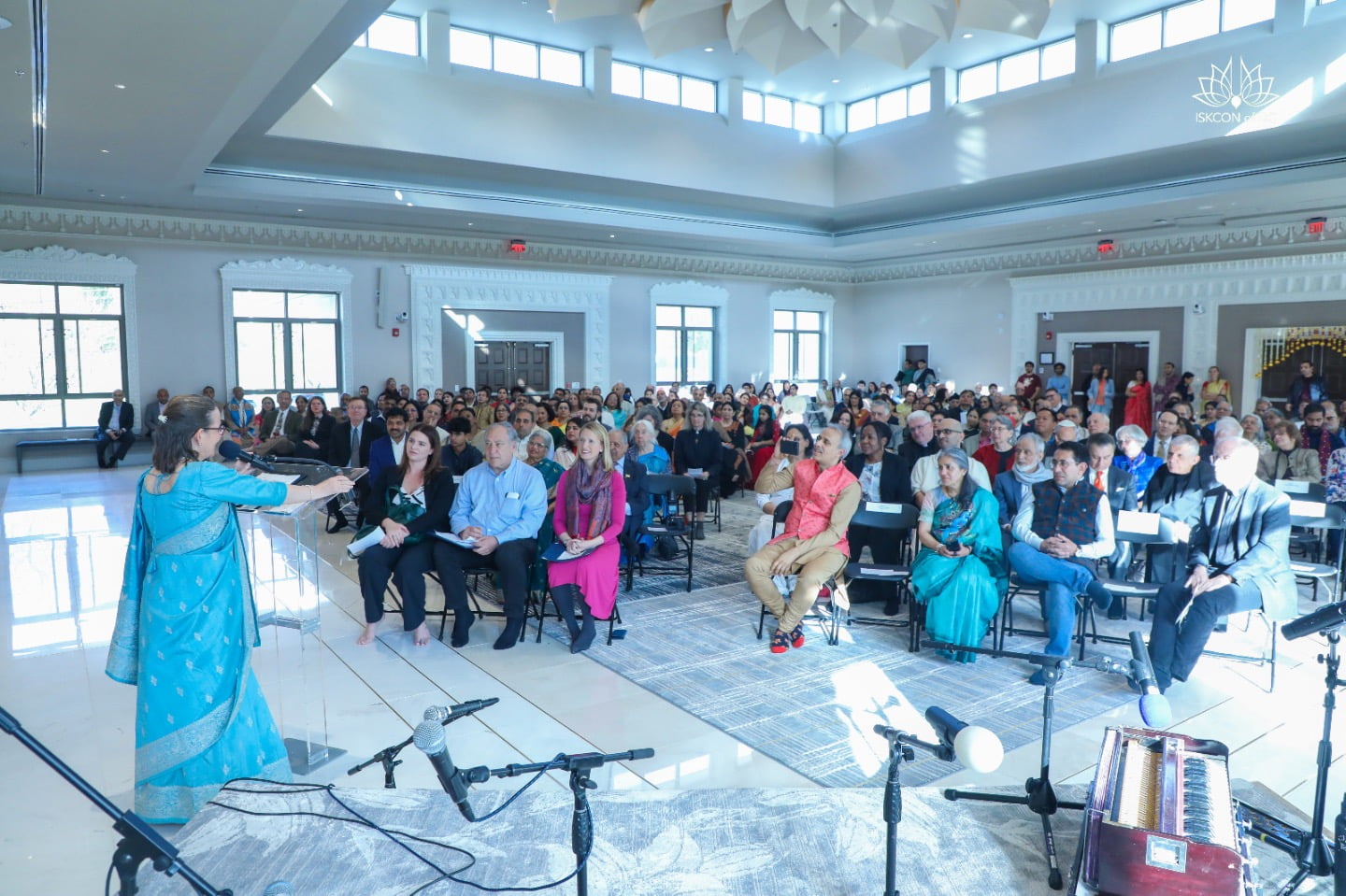“The Power of Women’s Voices – How They Have Changed the Spiritual Landscape”, Part 2 of 2
By Rukmini Walker | Jan 12, 2019

What follows is part two of my series of excerpts from Rukmini Walker’s address at the Parliament of World Religions in Toronto, Canada in November 2018. Alongside other esteemed women on the panel, we explored some of the great contributions of women spiritual leaders, teachers and saints within Buddhism, Christianity, and Hinduism.
I’d like to illustrate these ideals by sharing some stories of a few visionary women who lead facing OUT, by facing IN, in deeply spiritual and introspective ways. Some from ancient times, one from the time of the Bhakti renaissance in India’s sixteenth century, and some from our contemporary times today, a queen, a prostitute, a shunned princess, an illiterate village woman, and because our time is short just a nod to a sitting US Congresswoman, a woman physicist, and revolutionary environmentalist.
Examples of Visionary Women
(1) Kunti Devi: She is the long-suffering heroine of India’s epic, Mahabharata, Mother of Arjuna, and the protagonist of Bhagavad Gita. The example of her visionary wisdom in her own times of suffering is urgent even today. She says, almost prescient of today’s situation, “birth in an aristocratic family or nation, wealth, power, advanced education, beauty, all these advantages tend to intoxicate us with pride so that we become unable to call God’s name, Krsna’s name with feeling.” She says, “My Lord, please let my love for You, flow, uninterruptedly, as the water of the Ganges flows to the sea.”
(2) Pingala: She was a prostitute, a sex worker but she is described as one of our gurus in the ancient Bhagavat Purana. She was invested in her work not only financially, but also emotionally, as she stood outside the door of her house waiting for a customer, trying to attract a man, with her beauty. As the time became late, she stood there, after midnight, and had an epiphany: “Why am I looking for love, seeking affection from men, who should be the objects of my pity, while I neglect the true eternal beloved Lord of my heart? Who is always sitting in my heart, just waiting for me to turn to Him in love?” At that time, she reflected so deeply internally experiencing that long lost love. A deeply realized detachment, a renunciation of her previous occupation, and addictions, arose in her heart in Bhakti Yoga, self-realization and God-realization, arriving in tandem, in sacred relationship.
(3) Mirabai: The sixteenth century princess/poetess of Mewar in Rajasthan, India; She saw only God, or Krsna as her husband. Instead of remaining involved in palace life, she would go outside to the temple and mix with the common people, and holy men to sing in Kirtan, and hear Krsna’s holy names and glories.
Insulted by her rebelliousness, her mortal husband, the king, and his royal family tried to kill her by poison and in so many other ways. Each time she was miraculously saved. Seeing the absurdity of the world facing OUT, she was facing IN.
“Strange are the decrees of fate. Behold the large eyes of the deer! Yet he is forced to roam the forests. The harsh crane, has brilliant plumage, While the sweet-voiced cuckoo is black. The rivers flow in pure streams, But the sea makes them salt. Fools sit on thrones as kings, While the wise beg their bread. Mira’s Lord is the courtly Giridhara (Krona), The king persecutes the holy ones.” — Mirabai
(4) Sindhu Tai Saptal: She is a simple, illiterate village woman. At the age of twenty, she already had children and she was again pregnant. A man in her village was sexually abusing the women. Sindhu Tai went to the police and reported him. For revenge, that man came to her husband and told him: “Your wife is unfaithful to you and the child she’s carrying is not yours. Her ignorant husband became furious. He beat her, and after beating her, he threw her unconscious body into a cow shed to make it look like she’d been trampled to death by the cows. When she woke up, her daughter had been born and there was a cow (another mother) standing over her, protecting her, as she broke the umbilical cord with a sharp rock. She was hopeless, with nowhere to go sitting outside on the ground, outside the railway station. With her infant daughter in her arms, she was contemplating suicide, thinking to just throw herself and her newborn baby onto the railway tracks to die. As she sat under the shade of a tree, she looked up and saw that the branch that was giving her shade was broken just hanging dangling from a thread. She thought “this branch is broken, but it is giving me shade. I am also broken, but I could also give some solace to someone.” As simple as she was, she was facing OUT, by facing IN. She walked over to the railway station and saw an old man who was thirsty and brought him water. She began collecting orphans and helping them in whatever ways she could. She eventually became known as “The Mother of the Orphans”, and people began to help her, so she began to open orphanages. Her daughter, who was born underneath the cow got her PhD and joined her mother in her work, and her older children also joined her. At one point, her now destitute former husband came to her and begged her to help him. She told him, “I have only one relationship now, that of a mother.” But she allowed him to live in her orphanage. When visitors come, she tells them that he is her oldest child and that he is a very bad child. To date, she has adopted over 1400 orphans, and has been honored in over 15 countries.
To just briefly mention two other great women who lead, facing OUT, while facing IN:
(5) The bipartisan Hindu Congresswoman Tulsi Gabbard from Hawaii, she supports what’s right, even when she needs to vote against her own party, and
(6) the fearless Dr. Vandana Shiva, physicist and eco-revolutionary who’s speaking here today at the Parliament.
In conclusion, I see true leadership as facing OUT to serve the world, while being spiritually INFORMED, and TRANSFORMED by facing IN.
Let me close with another inspiration from Mirabai:
“To be born in a human body is rare. Don’t throw away the reward of your past good deeds. Life passes in an instant, the leaf doesn’t go back to the branch. The ocean of rebirth sweeps up all beings hard, pulls them into its cold-running, fierce, implacable currents. Giridhari, (Krsna) Your name is the raft, the one safe passage over. Take me quickly. All the awake ones travel with Mira singing the Name. She says with them, get up, stop sleeping, the days of a life are short.”












